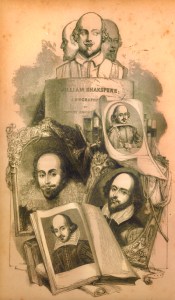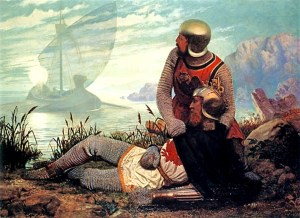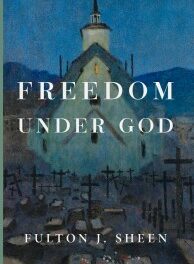We support our Publishers and Content Creators. You can view this story on their website by CLICKING HERE.
The default position with Shakespeare is to favor bold revisions over the poetic wisdom in the plays themselves. Why not let Shakespeare be what he is?
 In a recent piece for the New York Times, Drew Lichtenberg, the artistic producer at the Shakespeare Theater Company in Washington, laments the closing of the California Shakespeare Theater and the widespread decline in productions of Shakespeare across the country. The reasons, he suggests, have to do with many things, including the expense of mounting a full-scale production of a Shakespeare play when a much simpler, one-person performance or an audience-friendly production of an Agatha Christie mystery might cost less and draw a bigger audience. But his surmise is also that Shakespeare productions have become too politicized, and he cites in particular the Public Theater’s performance of Julius Caesar in 2017 in which the assassinated Caesar was an obvious Donald Trump.
In a recent piece for the New York Times, Drew Lichtenberg, the artistic producer at the Shakespeare Theater Company in Washington, laments the closing of the California Shakespeare Theater and the widespread decline in productions of Shakespeare across the country. The reasons, he suggests, have to do with many things, including the expense of mounting a full-scale production of a Shakespeare play when a much simpler, one-person performance or an audience-friendly production of an Agatha Christie mystery might cost less and draw a bigger audience. But his surmise is also that Shakespeare productions have become too politicized, and he cites in particular the Public Theater’s performance of Julius Caesar in 2017 in which the assassinated Caesar was an obvious Donald Trump.
He does find “Shakespeare” still being produced, “but remixed and reinterpreted, often under other names and guises.” For example, there is “a new production of Coriolanus featuring a female and non-binary cast, with a modern verse revision of the text by Sean San José.” Lichtenberg goes on to express his hope that upcoming productions of Shakespeare, such as the Othello starring Denzel Washington and Jake Gyllenhaal, will begin to “move past the polarization of the culture wars.”
This turn is devoutly to be wished, but the “remixed and reinterpreted” Coriolanus seems more symptomatic of our moment. Caius Martius, who is renamed Coriolanus, but be the most uber-masculine figure in early Rome—so of course the production needs “a female and non-binary cast.” It is hard to think of anything triter, more agenda-ridden, or more wearisome as a concept, much less as a theatrical experience. Seriously, what circumstance warrants “a modern verse revision” of Coriolanus by Sean San José? Should we hold this man’s name up to Shakespeare’s in the test that Cassius proposes for the name of Brutus next to the name of Caesar? “Sound them, it doth become the mouth as well;/Weigh them, it is as heavy.” I am reminded of Coriolanus’ lines about yielding to the tyranny of a mob. Wisdom, he says, “cannot conclude but by the yea and no/Of general ignorance.” The result is an “unstable slightness,” and “nothing is done to purpose.”
The purpose, in this case, would be producing Shakespeare in a way true to the plays themselves, which are works of art with their own inherent cohesiveness and intentionality. Our model in reading them ought to be the Earl of Kent, when, in disguise as a commoner, he presents himself to the self-dethroned King Lear. Lear asks him what he wants, and Kent replies, “Service.” Asked why he wants to serve Lear, he replies, “You have that in your countenance which I would fain call master.”
LEAR: What’s that?
KENT: Authority.
Shakespeare’s own countenance appears, not in the two or three somewhat unconvincing portraits of him such as the one in the Folio, but in the unmistakable mastery of his language. Is it so hard for us to recognize the authority of Shakespeare and offer our critical and dramatic service to his works? Coleridge says about the critics of Shakespeare,
Assuredly the Englishman, who without reverence, who without proud and affectionate reverence, can utter the name of William Shakespeare, stands disqualified for the office. He wants one at least of the very senses, the language of which he is to employ, and will discourse at best, but as a blind man, while the whole harmonious creation of light and shade with all its subtle interchange of deepening and dissolving colors rises in silence to the silent fiat of the uprising Apollo.
No one begrudges some flexibility in interpretation, but what happens when actors and directors simply refuse to acknowledge the authority of the text? As with quarrels over original intent in the Constitution, the question of authority goes deeper than Shakespeare himself, Matthew Crawford writes in a recent piece. “In the Lockean or Cartesian dispensation that Americans tacitly adopt, tradition is subject to a hermeneutic of suspicion. Our default is to think that inherited wisdom does little more than perpetuate forms of oppression, offered in bad faith as so-called knowledge.”
The default position with Shakespeare, then, is to favor bold revisions over the poetic wisdom in the plays themselves. Earlier this month, I gave a lecture on King Lear for the Gregorian Scholars Honors Program at the University of Mary, and I had occasion to watch the 2018 BBC version directed by Richard Eyre, starring Anthony Hopkins as Lear. It falls into the “remixed and reinterpreted” category, to my mind, and not just because of the radical cuts to the text, the modern military costumes, or the numbing choice to bring the body of Cordelia onstage at the end of the play in a body bag.
Edmund is played by a fine black actor, John McMillan. Edmund’s father Gloucester (Jim Broadbent) is white. Why the choice of a black actor, then? There are two options, I suggest. One is “non-traditional casting” in which the audience is supposed to pretend not to notice that Edmund, like France and Burgundy in this version, is black. The other option is “conceptual casting.” We should not only notice his blackness but also infer that Edmund’s mother was a black prostitute (Gloucester calls Edmund a “whoreson”) and interpret Edmund’s complaint about the “bastard” label as a code for all the exclusions that come from being black. The latter option seems very much in force—a black Edmund!—but the difficulty is that it merely gestures toward meanings. King Lear does not make bastardy (or by extension, blackness) more attractive in Edmund; rather, a metaphorical bastardy taints Lear’s two older daughters, who draw closer to its essential lawlessness through their lust for the Bastard.
Why not let Shakespeare be what he is? T. S. Eliot famously said that tradition “cannot be inherited, and if you want it you must obtain it by great labor.” Many labor to change it to their tastes rather than to honor it original authority. At some point, surely, the “uprising Apollo” of Shakespeare’s imagination will dispel all the fog. I remember reading King Lear three times in one weekend for a Shakespeare class I took at the University of Georgia. It is difficult to overstate the pleasure of laboring to obtain a knowledge of this poet, who can bring vividly before us such variety of human life that it might surprise us into seeing what is always true.
The Imaginative Conservative applies the principle of appreciation to the discussion of culture and politics—we approach dialogue with magnanimity rather than with mere civility. Will you help us remain a refreshing oasis in the increasingly contentious arena of modern discourse? Please consider donating now.
The featured image, provided by the King’s College London, Foyle Special Collections Library, is the “Frontispiece to The Works of William Shakspere, Charles Knight, editor, illustrated by W Harvey (London: Charles Cox, 1852).” This file is licensed under the Creative CommonsAttribution-Share Alike 4.0 International license, courtesy of Wikimedia Commons.
Share This Story, Choose Your Platform!
Go to Top

 Conservative
Conservative  Search
Search Trending
Trending Current News
Current News 






